#my ofmd meta
Text
Reasons not to be a lighthouse
So, I want to talk about the lighthouse, and what it means for Stede to be the lighthouse.
I’ve seen fanart that frames the lighthouse/kraken imagery in a light vs dark, oppositional way. Like Stede is a light that needs to rescue Ed from the dark. And jarring with that use of the imagery made me realise that I see these symbols completely differently, not in opposition but in parallel. To me it follows that if the kraken is Ed at his worst, then the lighthouse is Stede at his worst.
It’s easy to see the negative attributes of a kraken (frightening, violent), but the negative attributes of a lighthouse are less straightforward (yes, you can get smashed on the rocks, but what exactly does that tell us about Stede?).
When I considered it, it brought to mind the apocryphal tale where two nations are in contact by radio at sea. They each demand the other divert to avoid collision, going back and forth until one country says “This is the biggest, most heavily armed warship in our country’s big and heavily armed fleet. We demand that you divert course or we will fire upon you,” at which point the other country says “This is a lighthouse. Your call.”
A lighthouse is not going to divert course to avoid a collision. It’s going to stay exactly where it is, and if you don’t divert course to accommodate for it, you’re fucked. A lighthouse is a perfect metaphor for obstinance, for inflexibility. Stede can be bad at taking other people’s perspectives into account and adjusting accordingly. At his worst, he can’t even take in that other people’s perspectives may differ from his in the first place.
We see this with his family. He wants to uproot their lives and go to sea. He presents his dream as a present to Mary, and assumes she will be just as thrilled as he is, because he’s too wrapped up in his own excitement to connect with Mary as a separate individual. The dialogue then explicitly tells us how Stede is unwilling/unable to hear Mary expressing her perspective/experience:
Mary: "You know I hate the ocean. I said so just the other day."
Stede: "What? When?"
Mary: "When we were standing by the fucking ocean."
Mary isn’t upset that Stede has an interest in sailing, she is upset that Stede has no interest in actually knowing her, merely trying to fit her into his own interests. The scene where Mary repeatedly tries to get Stede’s attention and he ‘Mmm’s without looking up from his book also show us how he does not respond to her attempts to communicate. It’s telling that when she presents her anniversary present to him, Stede does not know Mary paints. (Honestly, I would find it completely in character for Stede if she had mentioned her painting to him several times in the past, but he just hadn’t taken it in because it’s not what he’s interested in.)
Which takes us to the consequence of this inflexibility: the lighthouse is isolated. Stede is so inflexible at times that he cannot forge the back-and-forth communication required to actually connect with other humans.
We also see this at the start of the show with his crew. I think the underlying reason that the crew wants to mutiny is how Stede cannot see things from their perspectives or accomodate for them.
Stede went into piracy with no experience, and decided to impose his own views on how to do things on his crew, without seeking to first learn from them about an area in which he has no experience. Throughout the first few episodes we see Stede trying to push his crew into being the people he expects and wants them to be, rather than trying to get to know them.
In the first episode, in the ‘talk it through as crew’ call and response, we see Stede (frankly, quite patronisingly) trying to push the crew into adopting his perspective and participate the way he wants them to. We hear Stede narrate "I pay my crew a salary. Same wage, every week, no matter what. Course, it took them a while to come 'round to the idea", and while Stede probably thinks he’s doing what’s best for them and they just can’t understand that, consider what difference it makes to the power dynamics if the results of everyone’s work are shared versus if they are completely dependant on Stede. Consider how Stede is disbelieving when Lucius says he’s the only crew member who can read ("That's not. Is that true?"), dismissing this input to the point that a couple of episodes later, when he tries to replace Lucius with Frenchie, he is surprised to discover Frenchie cannot write.
When Stede decides that the crew should vacation in episode two, he says explicitly "Your time is yours to do with as you please" and "There's literally no way to mess this up." He then almost immediately starts telling the crew what they can and can’t do, responding to their methods of unwinding with "That is NOT what I was talking about!". You’re not allowed to spend your downtime roughhousing, becasue Stede does not enjoy roughhousing. Stede’s preconception of himself as a captain is that he is accepting and he listens, but the actuality of his captaining style is that he tries to push his crew into complying with his preferences.
In the third episode, Stede is completely unwilling to learn from his crew – most of whom have visited the Pirate Republic before – about how things work there. When Lucius tries to advise him (repeatedly) he dismisses it (repeatedly).
If the kraken represents a toxic masculinity aligned with aggressive and threatening behaviour, then the lighthouse represents a toxic masculinity aligned with is mansplaining, blind confidence and the assumption of authority.
In episode four, their meeting starts Stede and Ed’s arc of mutual character development. I think it’s a crucial moment in Stede’s development when he excitedly presents Ed with Stede’s preconception of who Ed is – a picture of Blackbeard from one of his pirate books – and Stede actually sees and takes in Ed’s response. Stede listens to Ed. And after having listened, Stede adjusts his course. While Stede’s perspective is firmly that being Blackbeard would be great (he says that he’d give up everything for just a day of being Blackbeard), what he says to Ed isn’t encouragement to keep going, insisting that surely Ed’s life is amazing. Instead, it’s: "Look. I can't believe I'm saying this, but have you ever considered retirement?" This might be the first moment in the show where Stede is considering things from someone else’s perspective. And that’s the start of him being able to reach past his previous isolation and actually connect.
Stede still struggles at times with seeing past himself for the rest of the show, but episode four is a turning point. It introduces his capacity to change and a new willingness to learn.
For the rest of the show, we see Stede succeed when he stops trying to be the isolated beacon that gives detached direction, when he can see past his preconceptions, connect and adjust, and we see him fail when he can’t. In episode five his moment of triumph is rooted in a moment of connecting with and listening to Frenchie. When Frenchie expresses his experience – “I was in service for a minute so I now the lay of the land and trust me, servants, they see everything. This lot, they're not so fancy” – Stede actually takes it in, and that gives him the idea to ask Abshir for the information that Stede builds into his passive aggression bomb. In episode six Stede comes pretty close to explicitly naming the problem and solution himself: "I'd like to apologise for my behaviour earlier. As total as my theatrical knowledge may be, I did forget the most important thing: company!"
I think what takes the crew from where they started at the brink of mutiny, to the intense loyalty they have by the end, is not a change of heart on their part, but Stede changing. Stede softening his dismissive streak, starting to genuinely rather than superficially listen to his crew and to respect their input.
When Stede feels he needs to be the lighthouse, he feels he must be the guiding light all on his own. He can’t have his guidance questioned, because then he’s failing in his role.
I think this sense that ‘knowing best’ is supposed to fall entirely to him is one of the reasons why he feels so guilty about leaving Mary: he is supposed to be her guiding light, so surely without him she must be lost? Surely, without his light, his family have been smashed up against the rocks? It is his sense that he has failed in his duties at being his family’s lighthouse that makes him falter at the crucial moment when he leaves Ed. Stede seeing that actually, his family are just fine at finding their own direction (and Stede finally, finally, listening to and allowing himself to be changed by Mary) is what shows him that he doesn’t have to be the lighthouse.
I don’t think he returns to his crew as a guiding light. I think he returns ready to adjust course as he goes, with his crew’s support and collaboration.
#ofmd meta#stede bonnet#our flag means death#ofmd#I was going to add another section about how Ed is the counterpoint to this#how (as others have explored in excellent meta) Ed is too flexible to others in contrast with Stede not being flexible enough#and how I understand that with the overall lighthouse/kraken symbolism#but I think that might be a whole other meta because this is already pretty long#my ofmd meta
2K notes
·
View notes
Note
Stede tells the crew: "We'll talk it through as a crew" and he gets them to be emotionally open and honest with him and with each other, but he can't bring himself to do the same. He gets Ed to open up to him in a sobbing meltdown but he's a closed book.
I think the first (and possibly only) time in the show that Stede ever actually talks about his own feelings is on the beach: "You make Stede happy."
THIS IS VERY TRUE
and since i have a couple minutes i want to talk about stede and trauma responses.
because stede's got a lot going on, re: the reasons he makes some pretty poor choices throughout the run of the show; he's got a touch of narratively ironic main character syndrome, he's preeeeeeetty fucking non-neurotypically coded, his wealth and material comfort have kept him from noticing the larger state of the world, the hilarious snippy retorts parts of him are hilarious and snippy, etc.
but on top of that: we've met his fucking dad. i don't really want to speculate past what canon showed us, but i'd say he absolutely qualifies as emotionally abusive, and we know he sent stede off to sad alone little rich boy school at some point.
we get zero indication stede has experienced even the barest attempts at emotional support until mary offers them, at which point he's like 'what is this... telling people deeply personal things about you that you speak of??? and then people don't take those things and laugh at you??? they want to help you??? seems sus, i would rather go read a book and/or run away to sea like a small child lugging his backpack of fruit snacks down to the park. also when i tried to tell you about horses with kind eyes you didn't understand what i was trying to do there and i felt slighted, so thanks to my upbringing i have taken that miscommunication and hung onto it and even if i don't know it, it's playing into why i won't take you up on your very kind and well-communicated offer to alleviate my pain. i am A LOT. it's sad, it's realistic, but oh man. it's hard dealing with me and it's hard BEING me. tell you the truth, i don't like it much either. or myself! weird, that.'
this man makes me want to CRY.
anyway: stede grew up with a father who looked him in the face and said: you suck. you deserve no kindness, which is handy because i will never show it to you! and if you don't get used to that level of cruelty in the place that should feel safest from the person the world says is taking care of you, you are not gonna make it out of this shit alive.
stede made it the fuck out. he cut himself into pieces and shoved himself into boxes and learned to shut his fucking mouth and not expect kindness, so when people offer it to him he doesn't trust it.
hell. i'm not even sure he knows what kindness is, before he takes his fruit snacks and his backpack and runs away to the sea.
i truly do love this show.
#my ofmd meta#okay now to like. do an adult thing. a chore! who knows#the world is my responsibility oyster
1K notes
·
View notes
Text
I know we’ve talked a lot about Stede begging Ed for forgiveness and like, hell yeah, keep it coming fandom, but I’m starting to think Ed is going to go so far down a self-hate spiral that he’s not going to want Stede to apologize to him.
Like this is what Stede did:
• cruelly and thoughtlessly abandoned Ed without a word of explanation
And this is what Ed did:
• chucked Lucius overboard (presumably to kill him)
• marooned Stede’s crew
• stole Stede’s ship and threw away all of his stuff and books
• cut off Izzy’s toe and fed it to him
• decided that there’s nothing left for him but to be Evil™ and the monster that everyone apparently wants him to be
I just think that if Stede comes back to Ed and tries to apologize, Ed will be completely baffled by it. Because he’s going to believe that A) Stede left him because he wasn’t worthy/doesn’t deserve fine things and B) Stede was right to do that because look at what Ed’s done since then.
And while A and B are not true, it’s going to be difficult for anyone to convince Ed otherwise because Stede did leave and Ed did do those things and Ed’s deepest darkest secret before all of this was “I’m not a good person, that’s why I don’t have any friends.”
#our flag means death#ofmd meta#edward teach#stede bonnet#you wear fine things well#my ofmd meta#Ed is MY beautiful blorbo who has never done anything wrong#but in Ed's mind he has done many things wrong his entire life#ed is a stede stan and an ed hater#in the same way that#stede is an ed stan and a stede hater#you know?
156 notes
·
View notes
Text
OKAY time to talk about Izzy’s code of honor.
People often claim that Izzy is unusual by pirate standards because of his code of honor, and while I think that’s mostly true (he’s very, very big on rules even when they’re to his detriment), I don’t think it’s the whole picture. I’d argue that it’s not really Izzy’s moral code itself that makes him unusual – Instead, it’s his consistent adherence to that code even when other people violate it.
You know that phrase “honor among thieves?” That’s Izzy, I think – A good chunk of his code of honor seems to specifically apply to other criminals (think pirates and fences). This, by the way, is why Izzy claims that Stede stealing back his hostage is specifically “unprofessional” – Stede is claiming to be a pirate, and pirates don’t ambush other pirates. This is also more than likely why Izzy challenges Stede to a duel (and offers him the chance to yield!), rather than just stabbing him when his back is turned.
Now, admittedly, this framing gets a bit messy when you consider the original plan for the Revenge crew (make them repair the ship and then execute them) – How does Izzy justify that via his moral code? There are a few ways he could (the Revenge crew are not really pirates and are too incompetent to join the crew, robbing them is payment for the crew who died during that attack on the Navy ship, etc), but honestly, I doubt that he bothers! Izzy “above all else loyalty to your captain” Hands doesn’t need to justify the killing because Ed ordering it is justification enough. (Somewhat ironically, this is almost the exact opposite of how Ed contextualizes violence – He views his hands as clean of blood because he’s not the one doing the actual killing. I’m not convinced anyone on this ship is accepting responsibility for these particular types of murders lmao)
So if we accept that this is the moral framework that Izzy is working within (there are other possibilities, for sure, but this at least fits with what we know so far), that brings us to our next question – Is this framework actually unusual for pirates?
Within the show so far, we don’t really have much evidence for that one way or another – Stede certainly doesn’t display this sort of code of honor, but he’s also… not really a pirate. And while we see Spanish Jackie sell Stede and his crew out to the Navy in episode 3, since it’s an act of retribution, it doesn’t actually violate the above code. In general, we just don’t see enough interactions between pirates to say what goes as standard.
So instead of trying to frame this in the context of the show, I’m going to instead assess it through a social context. The concept of “honor among thieves” exists for a reason – There are a lot of cases where this particular brand of honor can be incredibly beneficial. In particular, it makes it much easier to work with other criminals. In Izzy’s case, his honor code likely makes it far easier to build alliances with other pirates, which generally speaking, is a good thing to be able to do. (The ease with which Izzy builds an alliance with Spanish Jackie and Calico Jack also suggests he’s at least decent at this.)
It’s also helpful for building stronger relationships with potential business partners. This is likely part of why Izzy was able to buy the hostages from the tribe in episode 2 – Presumably, there was already an established relationship there. Pirates also need to work with fences to sell their goods, and that sure goes smoother if there’s at least a modicum of trust (i.e., the pirates and the fence can present goods and/or money and not immediately be violently robbed lol). So yes, you attack and rob merchants, but you don’t attack pirates or other potential business partners without cause.
Anyway, considering how mutually beneficial this type of honor code can be, I doubt Izzy is the only one operating within this framework. The thing that makes Izzy unusual, though, is the sheer tenacity with which he grips this code of honor and refuses to let go. This is a pretty major flaw on Izzy’s part (I’m sorry, Izzy) because this type of moral code only works if both parties are willing to stick with it. Stede, unfortunately, is incredibly good at exacerbating this flaw – Every single time Stede and Izzy interact, Izzy ends up losing because Stede doesn’t care about Izzy’s rules. He’s perfectly happy to cheat and trick and, in general, do whatever is necessary to win.
Now, if Izzy were a more flexible person, this would not necessarily be an issue! I’m thinking again about Nicky Case’s The Evolution of Trust, a game theory simulator where you play against an AI, either cooperating or cheating, to collect coins. You win the most coins if you cheat and your opponent cooperates, and lose the most if you cooperate while your opponent cheats. If you and your opponent both cooperate, you’ll land in the middle.
The very short summary of this (although I recommend playing the game if you have 30 minutes!) is that building trust by cooperating tends to land you the best results overall. But it’s also important to be able to recognize when that trust was broken, and protect yourself if necessary.
This, I think, is Izzy’s major flaw, and also what makes him unusual among pirates. When Stede ignores the code that Izzy follows, what Izzy should do is follow his code a bit less fervently. Of course, this is not a thing that Izzy can do. I’m not sure it would even occur to him as a possibility! So Izzy’s refusal to break the rules puts him at an immense disadvantage to Stede, meaning he loses and loses and loses.
#put this under a read more because it's a lengthy one!#i wrote this 1000 word meta post instead of doing my work shout out to being responsible!#ofmd#ofmd meta#my ofmd meta#izzy hands
124 notes
·
View notes
Text
i think ‘emotional manipulation’ is a wrong way to describe izzy hands
that man couldn’t fake an emotion if he tried. he’s just repressed but that’s outside of his control. every time he talks to edward to demand something he puts everything in the open. he’s hot-headed and sometimes oversells his point but he’s the one left regretting it the most. the fact that edward chooses to interact with his... everything in the ways that he does is wholly on edward. yes it’s his old friend whose service, loyalty and respect he doesn’t want to lose - but izzy airing out his unflattering opinions doesn’t constitute abusive social pressure or whatever.
izzy is also capable of covert planning - he lies about telling stede that the captain who wanted to see him is in fact blackbeard, and then later he orchestrates stede’s capture by the british. but i don’t think this is something he’s particularly secretive about. it’s just another instrument for him, the same as his blade. does trying to kill stede against ed’s wishes count as manipulation too?
it’s just that i think they do have unhealthy mutually established boundaries where they do own each other in a sense. their personal contract includes a shared indentity, a clear hierarchy, a set of agreed upon values and goals. it’s a professional relationship blended seamlessly with a personal one, so it’s not surprising any significant change in edward’s personality impacts izzy and panics him. (it doesn’t help that they don’t have a clear line of communication and that the only way to redraw the boundaries or to withdraw is violence. pirate identity yay.) izzy does cling to what he sees as their pact with everything he’s worth. but i think if edward hasn’t once been just as wholly committed to it then izzy’s appellations wouldn’t have nearly as much effect on him.
it’s true to say that izzy tries to control - influence - edward by visibly taking away what he considers to be ‘bad’ options for him. he definitely has a sense of entitlement over ed’s life. but the violence with which he achieves it is mostly out in the open, and it’s expected (and welcomed!) that edward would strike back, which would be a clear signal to stop. i think the precursor to this spiralling out of control with stede’s arrival used to be their established dynamic of izzy weathering ed’s black moods and working around them - he feels he has the right to make decisions for edward because he’s been given that right in the past.
#hm i think we've already had better meta on izzy and (non) manipulation#but whatever this was sitting in my drafts and i still mostly agree with it so up it goes#i think the recent meta about izzy being a clown who can't juggle ties in#with the question of controlling behavior and boundaries#izzy hands#our flag means death#ofmd meta#my ofmd meta
222 notes
·
View notes
Text
i just love that ed asked for stede to stop
i love that stede was finally able to tell ed that their first kiss happened too fast and that he panicked. i love that when they kissed again, when ed leaned in for a quick peck but stede got passionate, ed was able to break the kiss and say "hey man, let's take this slow". i love that stede, of course, immediately stopped. i love that it didn't feel weird and they kept playing with each other's fingers and talking about their day
that was the most healthy, natural, realistic kiss i've seen. it wasn't romanticized for tv, it wasn't forced to be something it didn't have to be. it happened under a moon that wasn't full, on the deck of a messy ship, after ed complimented a piece of fine clothing that had lost most of its charm. it was as awkward as it was graceful
#ofmd#our flag means death#ofmd s2 spoilers#blackbonnet#gentlebeard#stede bonnet#edward teach#ofmd meta#i'm quite literally eating my windows#🏴☠️
9K notes
·
View notes
Text
thinking about how ofmd took blackbeard, a historical (almost mythical) figure that has pretty much always been depicted in media as a super hypermasculine white cishet man, and turned him into a gay man of color who wears crop tops and silk gowns, paints his nails and pines for his boyfriend
#ofmd#our flag means death#edward teach#ofmd s2#ofmd season 2#ed teach#blackbeard#our flag means gay#gay pirates#taika waititi#gentlebeard#blackbonnet#ofmd meta#loving edward teach hours#my posts
6K notes
·
View notes
Text
One thing I haven't seen a lot of talk about in the fandom so far is about the financials of this season.
It took us two whole months to get a confirmation of renewal from Max, and I talked at the time that I think there was probably a lot of heated negotiations going on at the time with contracts and that's why it took as long as it did.
I think we see a huge number of indications of the compromises that were made in order for S2 to be made. One obvious one that has been talked about is being making in in NZ instead of LA, to save $.
But there's also the eight episodes instead of ten. And then the cast aspect. One downside of moving overseas was having to fly out and house the cast, not just pay day wages.
We knew immediately about Guz Khan not coming back, losing Ivan as a character. At the time I was sad but I thought it had the air of a pretty harshly practical call. If you went through the main recurring cast and said okay which character will affect the fewest things, has the least character interactions of anyone? It would be Ivan. (With the only competition being The Swede IMO, but he's Stede's crew and therefore a little more central.)
And then this season started and we got first The Swede sidelined and taken out of major scenes. And then I noticed that different members of the crew were simply absent for long stretches, like Wee John isn't around for ep 5 at all. And then Buttons takes flight.
Lucius and Pete aren't at the party for most of it. Fang isn't in the torture scene. Roach and Fang aren't in the bar. Etc. SCHEDULING IS HAPPENING.
The new characters are almost entirely played by NZ local actors, which is great, but also...cheaper.
In other words there are big signs that they did everything possible to give us a giant cast of almost everyone we love from S1, and cool new characters, in the most economical way possible.
And I'm grateful for it. I'm grateful we got S2, and it looks great, and it's well written, I'm having a blast, and we get to spend more time with this awesome cast.
But I also kinda think it needs to be said that the cost-cutting shows. That it shouldn't have been only 8 episodes, the pacing is off. That we miss every time someone from the ensemble isn't on screen.
That despite what they've put on screen looking very good, there's far less costuming budget, there's less elaborate sets, and it's a little disappointing. And it's clear it's not a lack of will or talent or vision but blatantly lack of money.
Look, streaming networks want brilliant shows that people love (that will get them to subscribe) but they very don't want to pay anyone to make them. That's like, the whole moment we're having right now.
Max puts out promos about how great it is to not have unions messing shit up in NZ. Well I have friends who are union costumers in LA and guess what union costumers did amazing last season. This season, well, I guess Stede got three whole shirts, so that's cool.
So I dunno. It's just stuff I think about. I'm not trying to be negative about the show in any way. I'm extremely happy with this season; I love it more than well, possibly any show I've ever been in fandom for.
But I see you, Max. You're cheap. You weren't that cheap when you were called HBO.
5K notes
·
View notes
Text


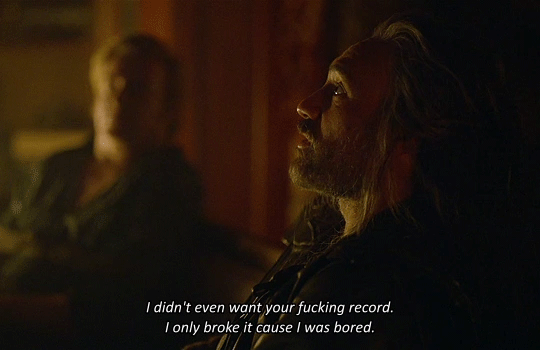
Ed baiting Ned Low </3
oh i get it. the tally marks, ‘we’ve got a record to break.’ ed was baiting ned low deliberately. he had to know low would come after him: low was ed’s original passive suicide plan - @forpiratereasons
#ofmd#ofmd gifs#ofmd edit#ofmdedit#ofmdgifs#ofmd s2 spoilers#ofmd s2#ofmd spoilers#ofmdaily#ofmdsource#dailyflicks#televisiongifs#edward teach#my gifs#ofmd meta#our flag means death
5K notes
·
View notes
Text

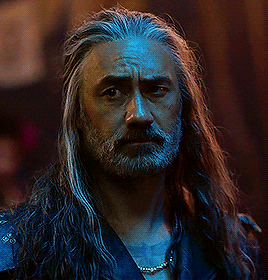
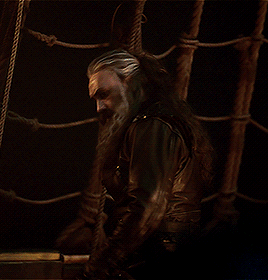
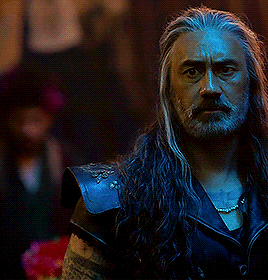



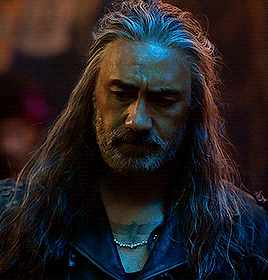
something something Ed not being able to step in to protect Stede from physical and emotional harm out of fear of damaging Stede's reputation and instead letting it play out as he silently falls apart in the background
#our flag means death#ofmd#ofmdedit#ofmd s2 spoilers#edward teach#blackbeard#blackbonnet#gentlebeard#taika waititi#there's an excellent meta on this in my head but unfortunately i don't know how to write#if anyone understands what i mean here please put my thoughts to words#my stuff
3K notes
·
View notes
Text
(seeing so many bad faith interpretations of the argument, y'all are really going to make me do this, okay HERE WE GO)
.................................
What Ed says: "I think last night was a mistake. I'm not ready for... Whatever this is."
What Ed means: "I didn't want last night to happen so soon or under those circumstances. Things are changing rapidly, which makes me feel out of control and scared."
What Stede hears: "I regret sleeping with you. I don't want the sort of relationship that you're after."
.................................
What Stede says: "It was a fine fish. It was... whatever. I was just trying to make you feel good!"
What Stede means: "I only cared about the fish because you cared about it, and I care about you. I liked the fish because it made you happy. Ordinarily, I'm ambivalent about fish."
What Ed hears: "I lied to you. I didn't care about your achievement I was just placating you to get what I wanted."
.................................
What Ed says: "Here's the news: I'm leaving. I got a job on a little fishing boat and I'm leaving. I'm a fisherman now."
What Ed means: "I think I need to be away from you to figure out who I am, because I haven't been able to do that while we're together, and your lifestyle now is the life I'm trying to leave behind."
What Stede hears: "I've made a decision to leave you and have a life without you. I don't value what we have enough to work with you to find a solution, I'd prefer to end it."
.................................
What Stede says: "Oh, Ed. Seriously? You're not a fisherman."
What Stede means: "I think you're using this plan to escape and avoid your problems. It sounds like you're pretending to be someone else. It seems to me like an impulsive decision and I am concerned."
What Ed hears: "I don't support this ambition. I think you're incapable. I don't think you can be different from what you have always been."
.................................
This is the kind of analysis done in therapeutic environments. When I put what they mean, it's not just a rephrasing but a boiling down to the core issue. I could go on to the rest of the dialogue but do you see the continuing ship-in-the-night miscommunication?? It's tripartite:
failing to express one's current emotional reality with the most accurate and clear language, often because that reality is not fully understood to oneself,
misinterpreting the other's language, due to preexisting sensitivities and defensiveness about one's own understanding of the situation,
increasing frustration and sense of personal attack that results from those misinterpretations, which perpetuates and worsens the poor communication.
Importantly, this kind of pattern means you miss the best and most important kernels of communication in an exchange because you're reacting to the more inflammatory parts.
Stede: "This can be whatever we want it to be." (I am willing to make changes to our arrangement so that you're happy).
Ed: "I don't even know who I am! Alright? I know I don't want to be a pirate. And you, you're blowing up, you're the toast of the town." (I think we want different things. You're just starting a journey that I've already finished).
With those two bits alone they could've sorted this out. The first is the answer to the second. But they didn't -- couldn't -- latch onto it because all their other baggage was getting in the way.
And I'm being proven correct that this is what is happening, because I have seen next to nothing on here about the above two lines, only reactionary takes of fans also focusing on the inflammatory parts because of their predispositions. You're doing an encore performance of what they're doing.
Point being, there are no bad guys in this scene, just repeated system failure!
#our flag means death#ofmd s2 spoilers#blackbonnet#ofmd#edward teach#stede bonnet#ofmd spoilers#ofmd s2#ofmd season 2#our flag means death s2#ofmd meta#something something cracking up on the rocks#cocktail name? my mental state? who knows!
4K notes
·
View notes
Text
Stede & Violence
I’m currently chewing on Stede’s relationship with violence vs. the-narrative-voice-of-OFMD’s relationship with violence. I’ve definitely seen a lot of people lauding Stede’s non-violence, but I’m not sure the narrative voice of the show really agrees with Stede on the matter. But then, I’m also not sure what the narrative voice is saying about violence.
I can’t really think about violence in this show without thinking about this excellent meta on Ed’s trauma by @fuckyeahisawthat, in which they say “I think this is one of the show’s core thesis statements: that violence fucks you up even if you come out on top.” And initially I was like ‘YES!’ but the more I spend weeks thinking about this show with excessive intensity, the more I’m like ‘…or maybe not?’ Unquestionably, with both Stede and Ed’s stories, the show tells us that killing fucks you up even if you come out on top. But violence in general? I’m not sure.
I wrote Reasons not to be a Lighthouse recently, a meta in which I argued that Stede has a tendency to impose his own worldview on others, which is a trait I see as shaped by toxic masculinity (frankly, a specifically white and class privileged form of toxic masculinity). And seeing @wellwhiskey’s post of quotes pulled from an earlier script of the pilot only made the narrative voice’s criticisms of Stede on this front clearer to me. The narrative of the show criticises what it frames as wrong by mocking it, and the pilot is clearly mocking Stede for not listening to or learning from the crew. For example, when Stede asks Lucius what a captain’s most useful instrument is, then responds like this when Lucius guesses ‘a compass’:
STEDE
No. Incorrect.
(touches his ears)
These. Ears. For listening.
(then)
Write that down, Marcus.
LUCIUS
Again, my name’s Lucius
Given how critical the show is of Stede not listening to his crew and instead imposing his perspective on them, I think it’s clear that the show is also criticising Stede in episode two, when he instructs the crew to take vacation time. He explicitly states both "Your time is yours to do with as you please" and "Look, there's literally no way to mess this up", and then these exchanges happen, in fairly quick succession:
ROACH
Can my vacation be torturing the hostages?
STEDE
I was thinking more along the lines of relaxing activities.
ROACH
Oh, I do find torturing hostages relaxing. Particularly this lot.
(beat)
I’ll just take them to the brink of death. I won’t go all the way.
STEDE
Let's say no to torture, I think. For now.
And not that long after, when Stede spots Wee John Feeney and The Swede hitting each other:
STEDE
Hey guys! What on Earth are you doing?
THE SWEDE
We're doing vacations.
WEE JOHN FEENEY
We're unwinding.
STEDE
(annoyed)
That is not what I was talking about!
The narrative voice of the show seems critical of Stede being critical of the crew’s violence. Perhaps in the case of the roughhousing Wee John Feeney and the Swede are doing, we can call that a different thing. Playful and consensual violence perhaps doesn’t belong in the same category as the violence the show frames as harmful. But it’s interesting to me that Roach is neither condemned by the narrative nor shown as particularly suffering. Feeling relaxed by torturing is hardly a case of violence fucking you up even if you come out on top.
In Reasons not to be a Lighthouse I made the case that Stede starts being more willing to listen to and learn from his crew from episode four – which also features Stede explicitly deciding he wants to learn from others, when he’s excited to agree to getting piracy lessons from Ed. The narrative voice approves of Stede (by letting him succeed/be happy) when he is willing to learn from others, and disapproves of Stede when he isn’t. Which makes it interesting that a lot of what Ed is shown teaching Stede at the beginning of episode five is explicitly how to be violent and aggressive (perhaps implying this is a direction of character development for Stede?). Stede clearly feels unsettled by going along on a raid or by Ed demonstrating how to threaten a captive, but Stede isn’t just frightened, he’s also excited to learn. In the raid scene Lucius is clearly too scared to think clearly, but Stede’s desire to learn is more powerful than his fear:
STEDE
Isn’t this terrifying?
(then)
Note the gusto, Lucius!
LUCIUS
(yelling with fright)
That what?!
STEDE
The gusto! Why aren’t you taking notes?
The episode ends with a moment of triumph for Stede, with the French ship ablaze. Which certainly seems like a celebration of violence to some extent, even if Stede delivers the violence in question indirectly.
When Ed confesses to Stede that he hasn’t killed anyone since his father in episode six, Stede, Ed and the narrative voice are all clearly taking Ed’s trauma pretty seriously. There’s no question that, while Ed is not in the wrong for killing his father, the act harmed Ed. But consider this dialogue:
ED
If I’m honest… I haven’t killed another man since.
(beat)
Not personally.
STEDE
I mean… I have seen you maim some people.
ED
Maiming’s different. Love a good maim.
Yes, for the audience this is a joke, but for Stede this seems to be an attempt at being comforting. And what’s interesting is that it does seem to, to some extent, work. Maiming isn’t traumatising for Ed. He love a good maim. The way the narrative holds this moment reminds me a lot of Roach saying he finds torture relaxing. The narrative isn’t presenting these particular acts of violence as traumatic. Nor is the narrative condemning Ed for ‘loving a good maim’. The maiming and the torture are okay within the narrative frame. And unlike the torture exchange, the in this scene Stede is alongside the narrative voice, treating the maiming with acceptance.
In the Pilot draft script, when Stede presents Badminton’s body to the crew, it’s described like this:
Badminton’s body hits the deck. Stede stands over it. Hornberry screams, Shaw cries. The crew’s impressed. Stede takes this in. He’s never been feared before. He likes it.
Stede can like being feared. Stede can be accepting of maiming. Stede can be excited by violence and want to learn how to do it himself. And I don’t think the narrative voice thinks he’s wrong for these things or thinks that they are necessarily tragic.
The show is certainly more likely to frame violence against oppressors as neutral or celebrated (Jim throwing a knife though the hand of a British navy officer who’s throwing around racist abuse, Stede leaving the French ship to burn) but violence against oppressors can be framed as more fraught and traumatic (the scene where Ed tells Fang to skin the sailor who calls him a donkey certainly feels more emotionally fraught than it feels celebratory, and both Ed’s and Stede’s experiences of killing could go here too). Direct killing is usually framed as traumatic or upsetting, but the scene where Ed is called a donkey and the scene where Stede attacks Doug shows us instances of killing aren’t the only times the show explores connections between violence and trauma. ‘Violence is good when it’s funny and harmful when it’s not funny’ is kind of an answer, but really that just shifts the goal posts without answering the question, because then the question becomes: what violence do they choose to frame as Funny or as Not Funny and why?
I can’t pin down where the shows values around ‘when will doing violence harm you and when won’t it?’, but I have a strong feeling that the answer to that question is going to track with Stede’s character development: whether we see him develop more stomach for doling out violence when his values are threatened, or whether we see him walk hard line in sticking to his pacifistic inclinations.
#ofmd meta#stede bonnet#our flag means death#ofmd#if you can add this all up more cleanly than I can then tell me your thoughts#I'm so interested in this#for the love of fuck no one let me get so caught up in the question that I make a spreadsheet#like if you went through OFMD and noted every single instance of violence#whether that violence is punching-up punching-down or punching-laterally#whether it’s framed as harmful or not to the perpetrator#whether the tone it’s presented in is comedic triumphant or tragic/traumatic#maybe you could pull something out of that#but also#NO I DON’T HAVE TIME FOR THAT NO#my ofmd meta
34 notes
·
View notes
Text
izzy lightbulb moment!
okay, so: we don’t talk a lot about toxic caretaking as a society. it’s a weird and uncomfortable topic to get into, because not all toxic caretaking is malicious despite being always harmful to both parties involved and we... sort of like our understanding of these things to stay simple, which that is very much not.
it’s also a trait we firmly associate with women! which complicates this even further, because of all our stupid sexist baggage.
which is why it’s veeeery very interesting that outside misty quigley, izzy might be the best example of a realistic toxic caretaker i’ve seen in media in a long time.
because if we look at what izzy says, it’s all very: ‘look how hard i WORK, does no one appreciate me, oh woe oh sorrow look at all i put up with, this place would be lost without me’. when we look at what he does... he’s not actually doing any of that!
he’s fairly regularly cruel, he’s a terrible communicator, and sort of worst of all he’s not even all that good at... managing people, i guess? if the ship was in good working order, it seems unlikely that it’s solely izzy doing things like grabbing fang by the beard and screaming FUCK YOU ALLLL, DO WHAT I TELL YOOOOOU that made it work.
could be, i guess! but it seems somewhat unlikely.
(insisting they are the only one who keeps everything moving and everybody would be lost without them: peak toxic caretaker.)
even beyond that, when ed says ‘hey: fucking knock it off, maybe?’, because he’s well aware Izzy Is Just Like This, izzy goes TWICE AS HARD. this man does not actually listen to a single no! all season! ed says izzy stop and izzy says go go go, and all that. he refuses to allow for any real boundaries to ever be set.
the juiciest part of all: the fact that izzy doesn’t see it that way is peakest of PEAK toxic caretakers.
he is this way because this is the only way he knows to express the mangled, fucked up ball of sadness in his chest, and because the world told him to channel his natural impulses into weird, violent channels or ELSE. ‘izzy thinks he’s doing xyz’ is almost always an indication the reality is a lot more fucked up and complicated than that.
and tbqh, that’s part of what makes him (and what he’s actually doing by rolling around pooping on every single party he can find) so fucking interesting.
the fucked up masochism/anger/tenderness junction where izzy chose his weird little s1 hill to die on is so good. so awful! so fuckin’ sad. LOVE IT.
anyway yes: this show. it Compels Me.
#my ofmd meta#okay now back to the other shit i SHOULD be doing#i just love talking about this shit#our flag means death#ofmd spoilers
1K notes
·
View notes
Text
Currently thinking about how the reading that Izzy is *actually* threatening to kill Ed in the last episode doesn’t make any sense. Like, what could be his possible game plan there? Kill Ed and take over the ship as captain? Kill Ed and sneak off in the middle of the night? Option one wouldn’t work because the crew fucking hates him lol (they mutinied like immediately) and option two... just doesn’t make any sense? There’s no reason for him to do it???
Izzy was speaking in anger in that scene obviously, so he probably wasn’t really putting much thought into what he said -- He basically just exploded. But even if he *was* thinking it through, I really can’t picture a circumstance where that was an actual genuine threat to Edward’s life. At worst, Izzy’s threatening to leave (and suggesting that Ed’s going to get himself killed). He really *can’t* be threatening anything worse -- He has 0 power on that ship, and the entire crew would instantly choose Ed over him. Everyone hates Izzy! Killing Ed (or trying to kill Ed) would get *Izzy* killed, he’s ridiculously outnumbered.
For all the talk of Ed responding to the threat and “putting Izzy in his place,” Izzy didn’t actually threaten him? Sure, Izzy was an asshole, but for the most part his insults just felt very personal -- He didn’t really deliver any threats other than (imo) possibly threatening to leave. And Ed couldn’t have that! He wants Izzy to stick around (he needs him now that Stede’s gone!). So anyway, Ed responds to Izzy’s very much non-threat by fucking maiming Izzy in his sleep (a wild level of escalation if I do say so myself).
66 notes
·
View notes
Text
*points down at the prev reblog*
and THIS is why izzy hands is the javert of ofmd. if he admits that This Man is Good and Allowed to Exist then it carries implications not only going forward but also for all of his life going back to the moment he chose to subjugate himself to the System because he didn't believe he had any other choice. he had; he was wrong; everything he's done since in the service of that system has been cruel and unjust; he's seeing the light now but it only deepens the shadows around him. there's no point for him to go on in the world where everything he stood for is fundamentally wrong
#as i said: strong self-sacrificial vibes#but i hope ofmd isn't letting him off the hook that easily#it's also funny that to Izzy Edward is Valjean who i've Hurt and Stede is Valjean who was Always Right#izzy hands#our flag means death#les mis#my ofmd meta
20 notes
·
View notes
Text
So I accidentally almost got into an argument on Twitter, and now I'm thinking about bad historical costuming tropes. Specifically, Action Hero Leather Pants.
See, I was light-heartedly pointing out the inaccuracies of the costumes in Black Sails, and someone came out of the woodwork to defend the show. The misunderstanding was that they thought I was dismissing the show just for its costumes, which I wasn't - I was simply pointing out that it can't entirely care about material history (meaning specifically physical objects/culture) if it treats its clothes like that.
But this person was slightly offended on behalf of their show - especially, quote, "And from a fan of OFMD, no less!" Which got me thinking - it's true! I can abide a lot more historical costuming inaccuracy from Our Flag than I can Black Sails or Vikings. And I don't think it's just because one has my blorbos in it. But really, when it comes down to it...
What is the difference between this and this?
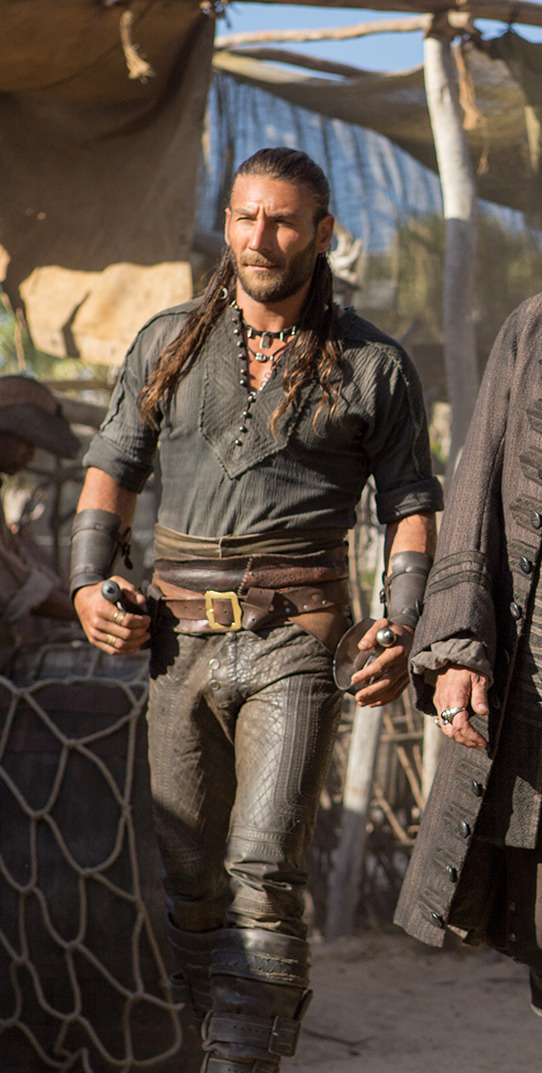
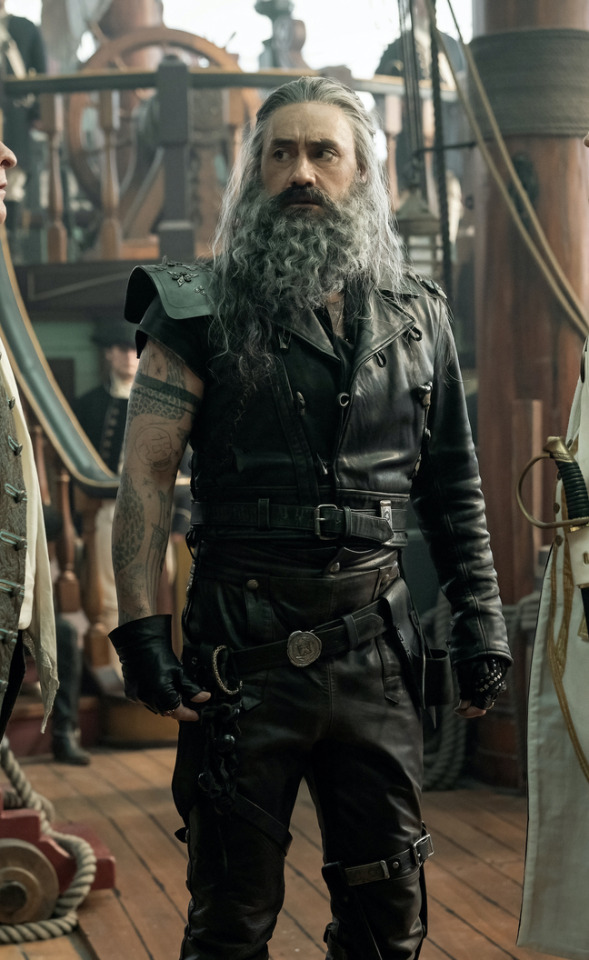
Here's the thing. Leather pants in period dramas isn't new. You've got your Vikings, Tudors, Outlander, Pirates of the Caribbean, Once Upon a Time, Will, The Musketeers, even Shakespeare in Love - they love to shove people in leather and call it a day. But where does this come from?
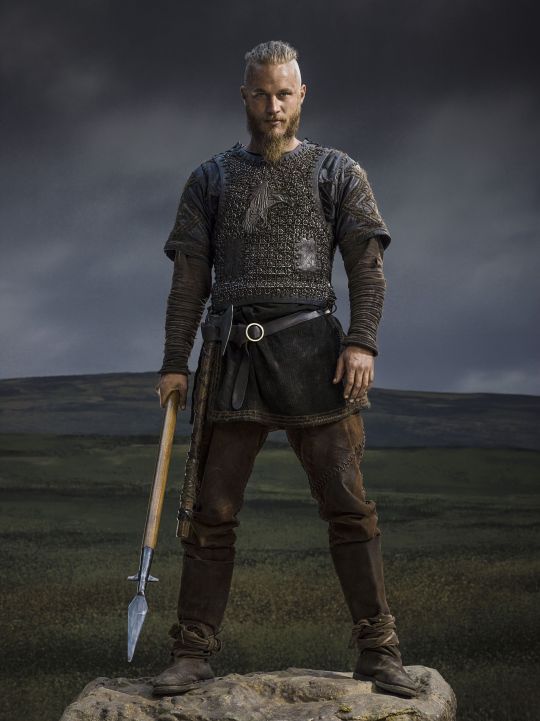
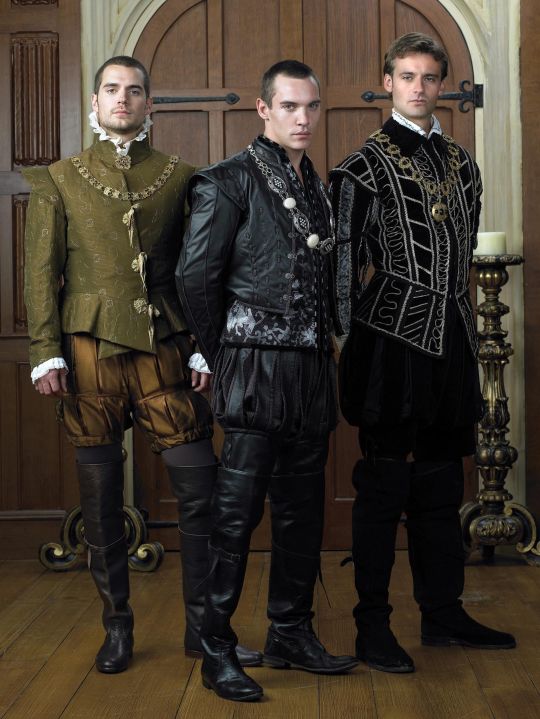
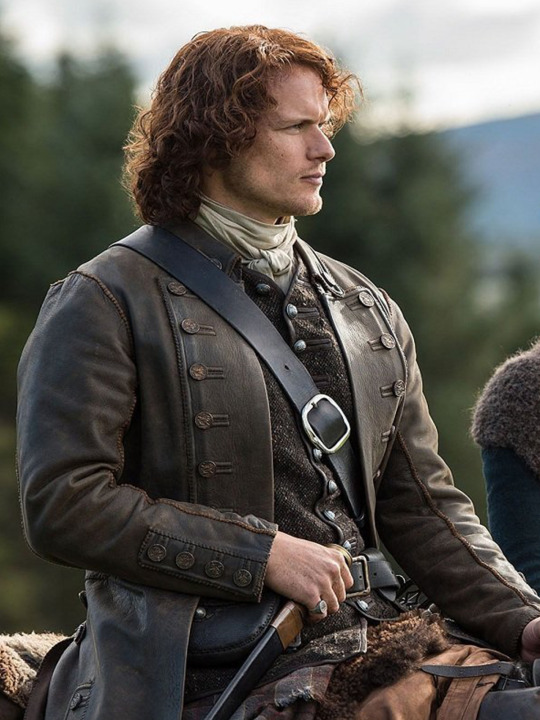

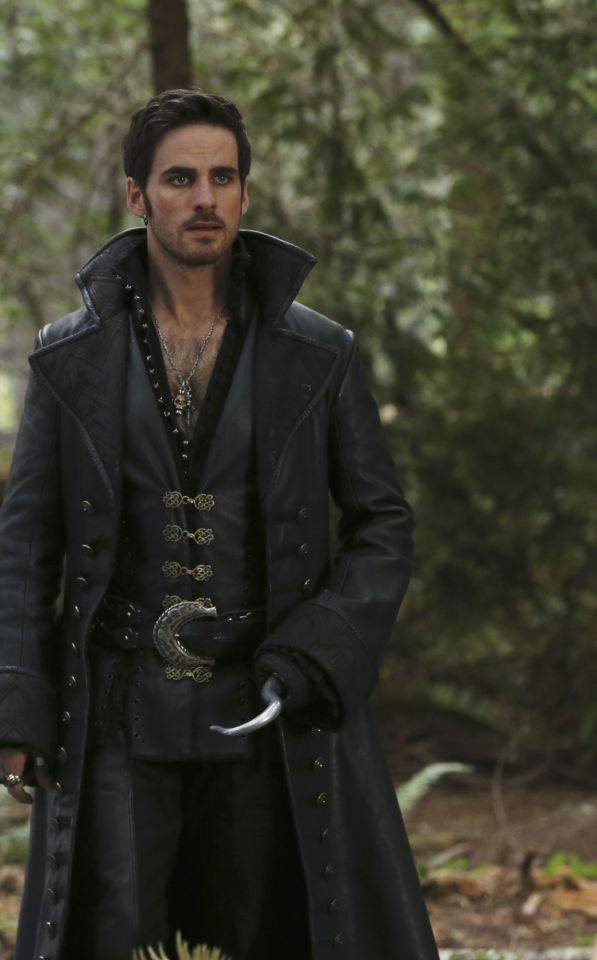
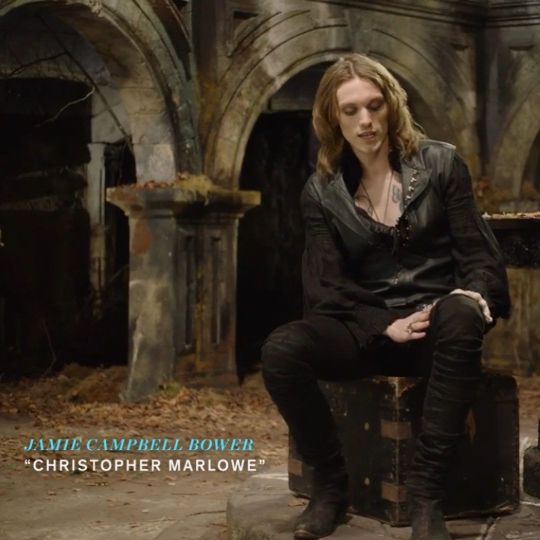
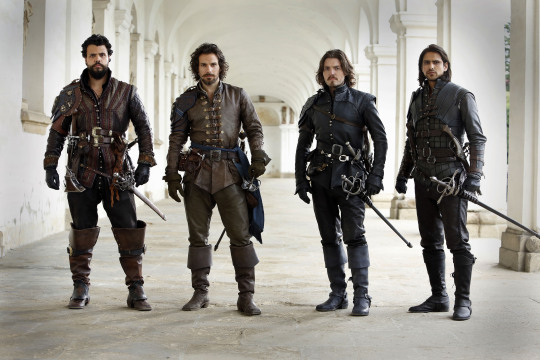
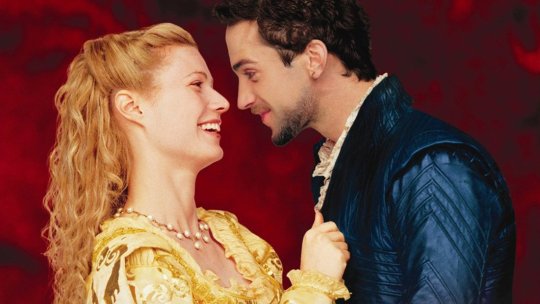
Obviously we have the modern connotations. Modern leather clothes developed in a few subcultures: cowboys drew on Native American clothing. (Allegedly. This is a little beyond my purview, I haven't seen any solid evidence, and it sounds like the kind of fact that people repeat a lot but is based on an assumption. I wouldn't know, though.) Leather was used in some WWI and II uniforms.
But the big boom came in the mid-C20th in motorcycle, punk/goth, and gay subcultures, all intertwined with each other and the above. Motorcyclists wear leather as practical protective gear, and it gets picked up by rock and punk artists as a symbol of counterculture, and transferred to movie designs. It gets wrapped up in gay and kink communities, with even more countercultural and taboo meanings. By the late C20th, leather has entered mainstream fashion, but it still carries those references to goths, punks, BDSM, and motorbike gangs, to James Dean, Marlon Brando, and Mick Jagger. This is whence we get our Spikes and Dave Listers in 1980s/90s media, bad boys and working-class punks.
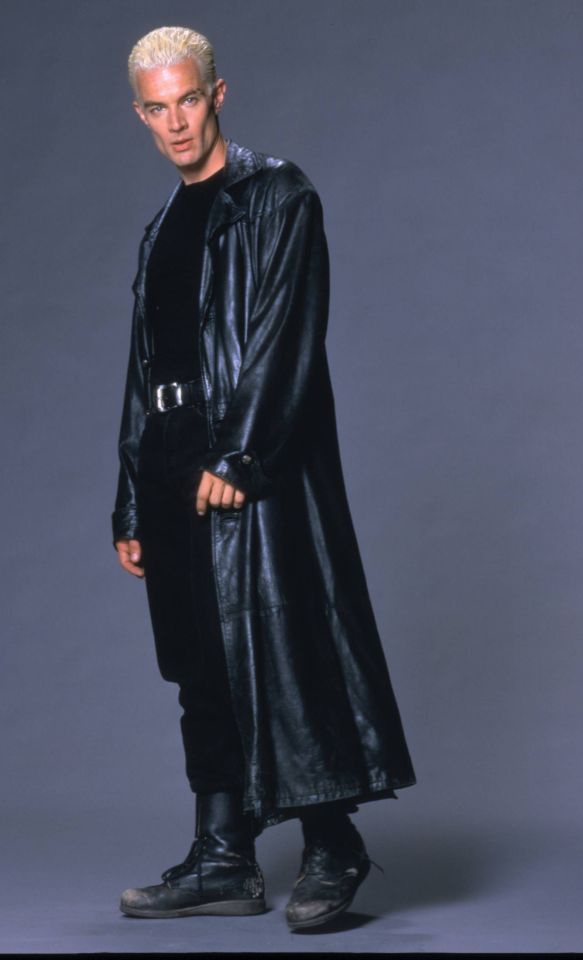
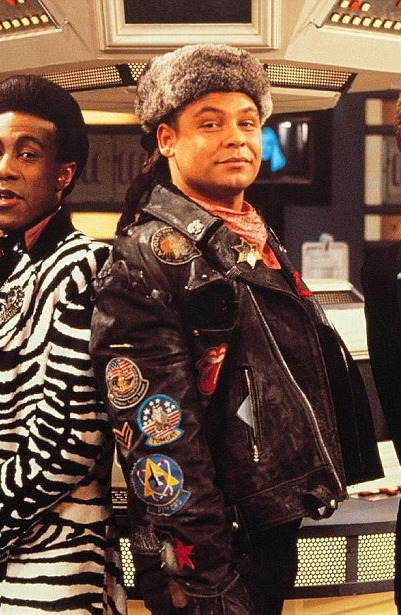
And some of the above "historical" design choices clearly build on these meanings. William Shakespeare is dressed in a black leather doublet to evoke the swaggering bad boy artist heartthrob, probably down on his luck. So is Kit Marlowe.
But the associations get a little fuzzier after that. Hook, with his eyeliner and jewellery, sure. King Henry, yeah, I see it. It's hideously ahistorical, but sure. But what about Jamie and Will and Ragnar, in their browns and shabby, battle-ready chic? Well, here we get the other strain of Bad Period Drama Leather.
See, designers like to point to history, but it's just not true. Leather armour, especially in the western/European world, is very, very rare, and not just because it decays faster than metal. (Yes, even in ancient Greece/Rome, despite many articles claiming that as the start of the leather armour trend!) It simply wasn't used a lot, because it's frankly useless at defending the body compared to metal. Leather was used as a backing for some splint armour pieces, and for belts, sheathes, and buckles, but it simply wasn't worn like the costumes above. It's heavy, uncomfortable, and hard to repair - it's simply not practical for a garment when you have perfectly comfortable, insulating, and widely available linen, wool, and cotton!
As far as I can see, the real influence on leather in period dramas is fantasy. Fantasy media has proliferated the idea of leather armour as the lightweight choice for rangers, elves, and rogues, a natural, quiet, flexible material, less flashy or restrictive than metal. And it is cheaper for a costume department to make, and easier for an actor to wear on set. It's in Dungeons and Dragons and Lord of the Rings, King Arthur, Runescape, and World of Warcraft.
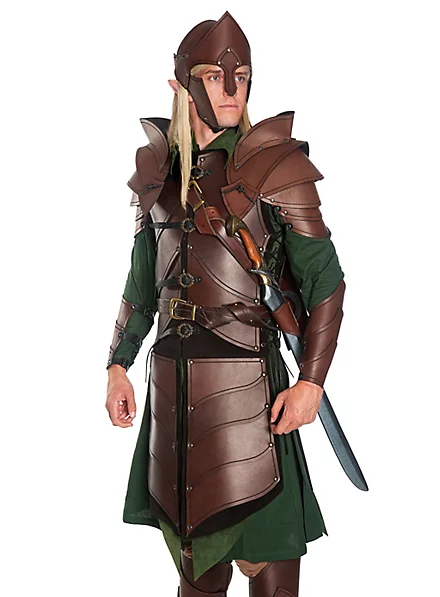
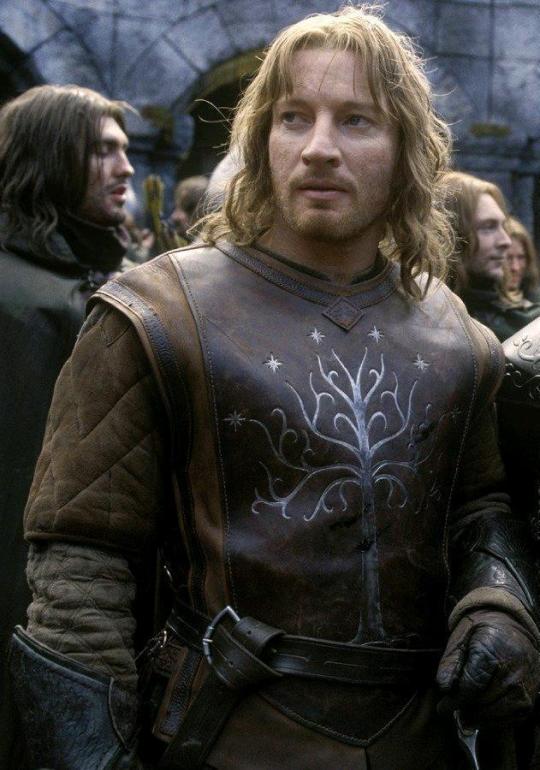
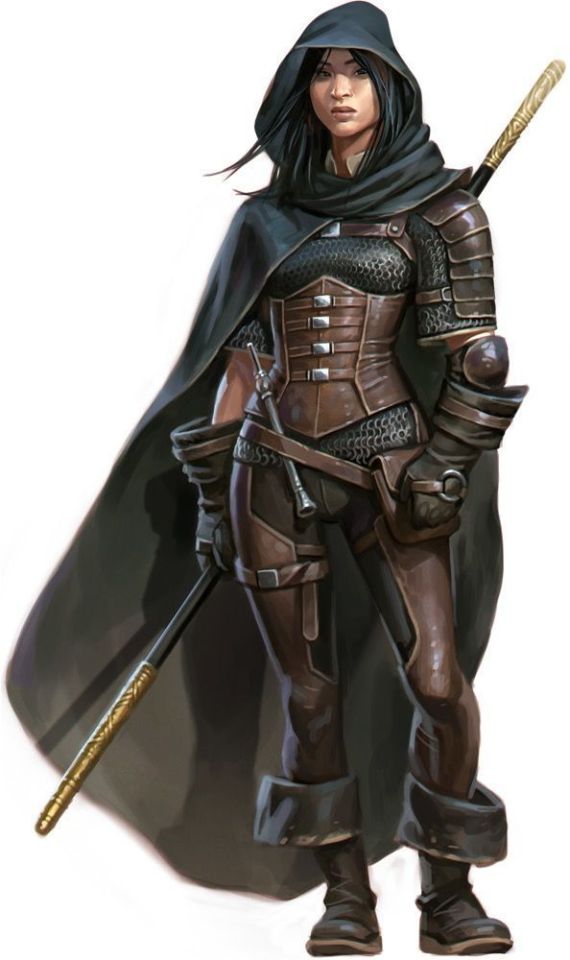
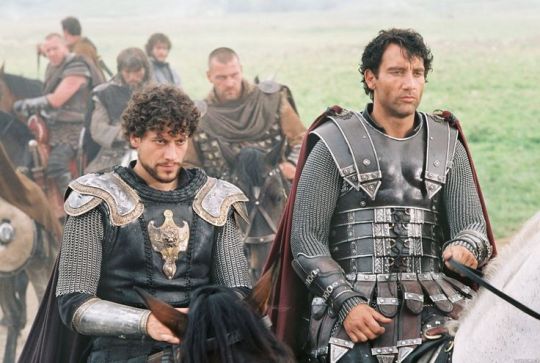

And I think this is how we get to characters like Ragnar and Vane. This idea of leather as practical gear and light armour, it's fantasy, but it has this lineage, behind which sits cowboy chaps and bomber/flight jackets. It's usually brown compared to the punk bad boy's black, less shiny, and more often piecemeal or decorated. In fact, there's a great distinction between the two Period Leather Modes within the same piece of media: Robin Hood (2006)! Compare the brooding, fascist-coded villain Guy of Gisborne with the shabby, bow-wielding, forest-dwelling Robin:
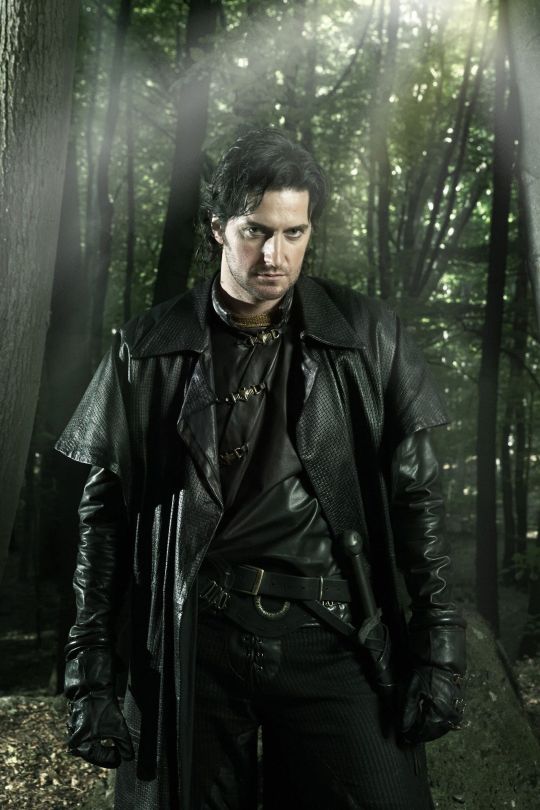
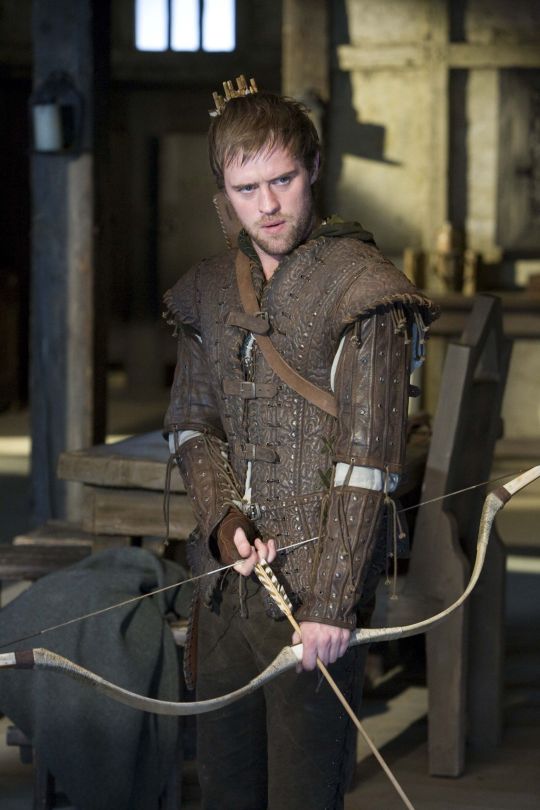
So, back to the original question: What's the difference between Charles Vane in Black Sails, and Edward Teach in Our Flag Means Death?
Simply put, it's intention. There is nothing intentional about Vane's leather in Black Sails. It's not the only leather in the show, and it only says what all shabby period leather says, relying on the same tropes as fantasy armour: he's a bad boy and a fighter in workaday leather, poor, flexible, and practical. None of these connotations are based in reality or history, and they've been done countless times before. It's boring design, neither historically accurate nor particularly creative, but much the same as all the other shabby chic fighters on our screens. He has a broad lineage in Lord of the Rings and Pirates of the Caribbean and such, but that's it.
In Our Flag, however, the lineage is much, much more intentional. Ed is a direct homage to Mad Max, the costuming in which is both practical (Max is an ex-cop and road warrior), and draws on punk and kink designs to evoke a counterculture gone mad to the point of social breakdown, exploiting the thrill of the taboo to frighten and titillate the audience.
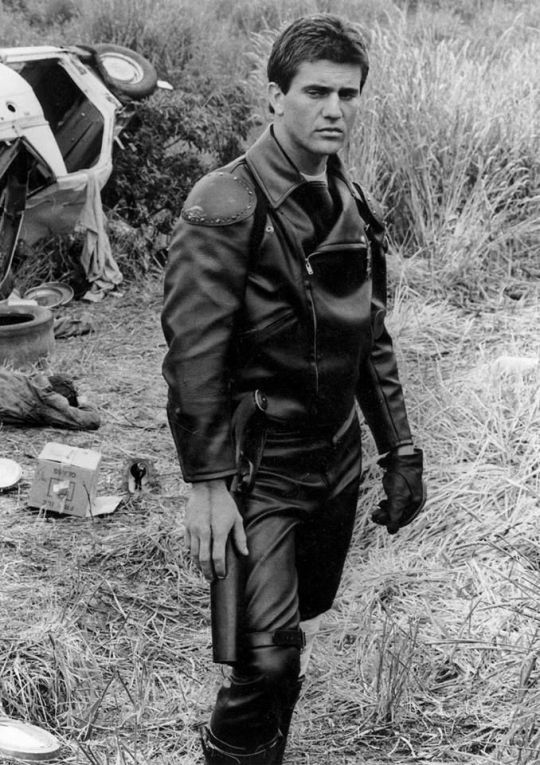
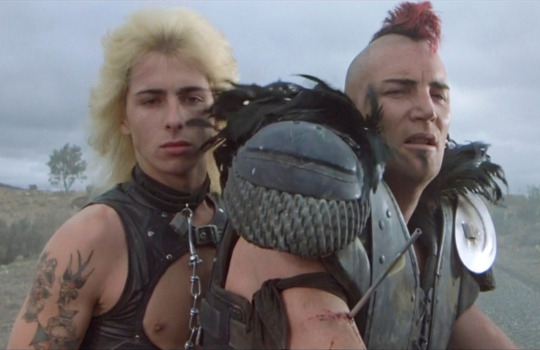
In particular, Ed is styled after Max in the second movie, having lost his family, been badly injured, and watched the world turn into an apocalypse. He's a broken man, withdrawn, violent, and deliberately cutting himself off from others to avoid getting hurt again. The plot of Mad Max 2 is him learning to open up and help others, making himself vulnerable to more loss, but more human in the process.
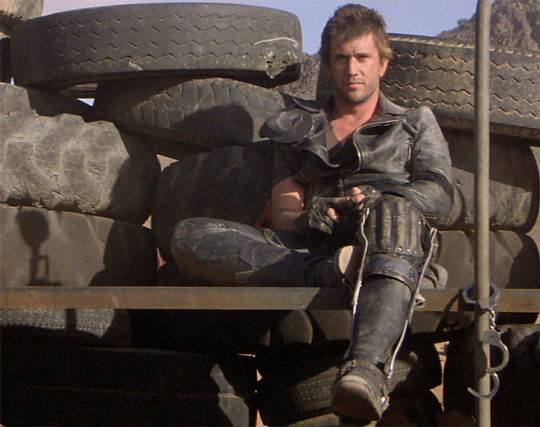
This ties directly into the themes of Our Flag - it's a deliberate intertext. Ed's emotional journey is also one from isolation and pain to vulnerability, community, and love. Mad Max (intentionally and unintentionally) explores themes of masculinity, violence, and power, while Max has become simplified in the popular imagination as a stoic, badass action hero rather than the more complex character he is, struggling with loss and humanity. Similarly, Our Flag explores masculinity, both textually (Stede is trying to build a less abusive pirate culture) and metatextually (the show champions complex, banal, and tender masculinities, especially when we're used to only seeing pirates in either gritty action movies or childish comedies).
Our Flag also draws on the specific countercultures of motorcycles, rockers, and gay/BDSM culture in its design and themes. Naturally, in such a queer show, one can't help but make the connection between leather pirates and leather daddies, and the design certainly nods at this, with its vests and studs. I always think about this guy, with his flat cap so reminiscient of gay leather fashions.
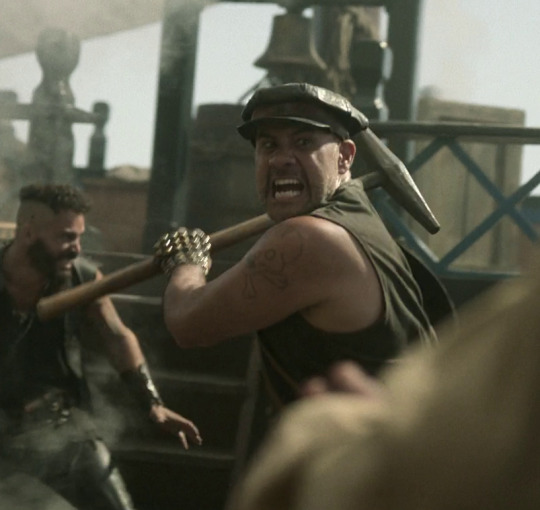
More overtly, though, Blackbeard and his crew are styled as both violent gangsters and countercultural rockstars. They rove the seas like a bikie gang, free and violent, and are seen as icons, bad boys and celebrities. Other pirates revere Blackbeard and wish they could be on his crew, while civilians are awed by his reputation, desperate for juicy, gory details.
This isn't all of why I like the costuming in Our Flag Means Death (especially season 1). Stede's outfits are by no means accurate, but they're a lot more accurate than most pirate media, and they're bright and colourful, with accurate and delightful silks, lace, velvets, and brocades, and lovely, puffy skirts on his jackets. Many of the Revenge crew wear recognisable sailor's trousers, and practical but bright, varied gear that easily conveys personality and flair. There is a surprising dedication to little details, like changing Ed's trousers to fall-fronts for a historical feel, Izzy's puffy sleeves, the handmade fringe on Lucius's red jacket, or the increasing absurdity of navy uniform cuffs between Nigel and Chauncey.
A really big one is the fact that they don't shy away from historical footwear! In almost every example above, we see the period drama's obsession with putting men in skinny jeans and bucket-top boots, but not only does Stede wear his little red-heeled shoes with stockings, but most of his crew, and the ordinary people of Barbados, wear low boots or pumps, and even rough, masculine characters like Pete wear knee breeches and bright colours. It's inaccurate, but at least it's a new kind of inaccuracy, that builds much more on actual historical fashions, and eschews the shortcuts of other, grittier period dramas in favour of colour and personality.
But also. At least it fucking says something with its leather.
#everyone say 'thank you togas' for not including a long tangent about evil rimmer in red dwarf 5x05#Our Flag Means Death#Togas does meta#and yes these principles DO fall apart slightly in s2 and i DON'T like those costumes as much#don't get me wrong they're fun and gorgeous - but generally a bit less deep and more inaccurate. so. :(#I'm not sure this really says anything new about Our Flag but I just needed to get my thoughts out#i hate hate hate Gritty Period Drama costumes they're so boring and so ugly and so wrong#god bless OFMD for using more than 3 muted colours and actually putting men in heels (and not as a shorthand for rich/foppish villainy) <3#looking at that Tudors still is insane like they really will go to any lengths to not make men feel like they've got bare legs XD#image descriptions in alt text#and yes i DID just sink about two hours into those so you'd better appreciate them
1K notes
·
View notes